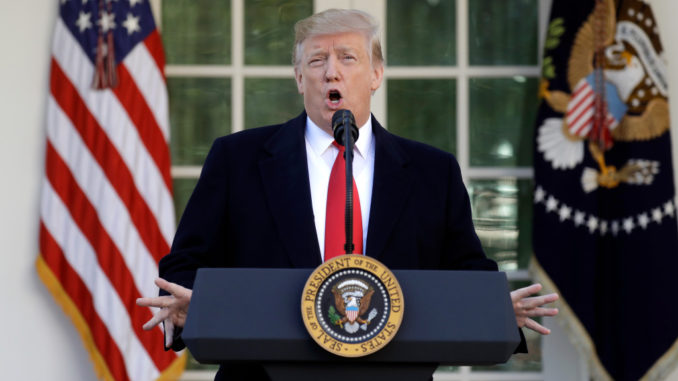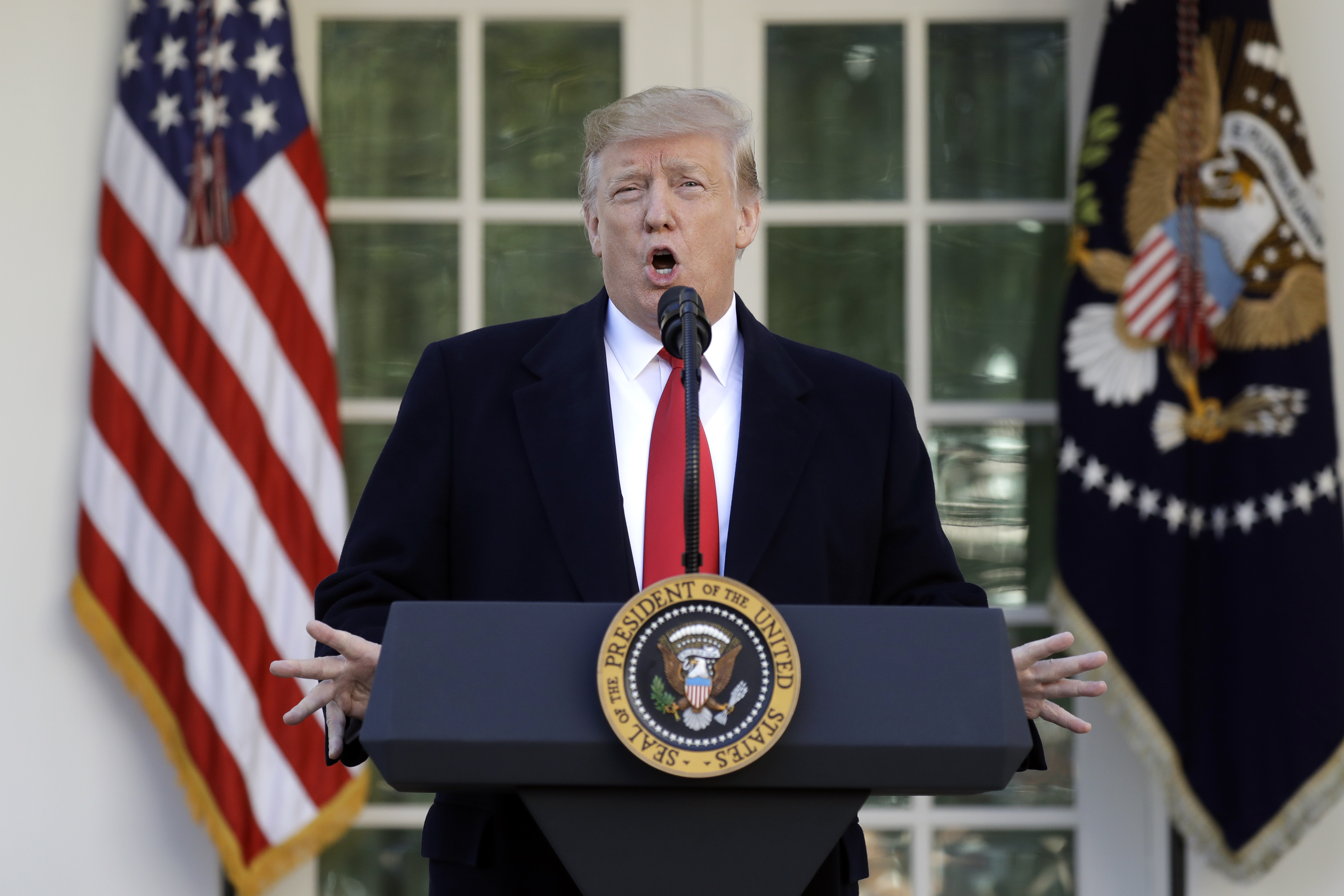
President Donald Trump rediscovered his core foreign policy beliefs and ordered the withdrawal of U.S. troops from Syria. Official Washington had a collective mental breakdown.
The president’s decision should have surprised no one. He long said he wanted U.S. personnel out of Syria. Once the Islamic State was defeated, he explained, Americans should come home.
However, the “adult” foreign policy advisers the president surrounded himself with disagreed with him on almost every issue. Worse, his aides played him at every turn—adding allies, sending more men and materiel to defend foreign states, and expanding commitments in the Middle East.
Last spring the president talked of leaving Syria “very soon.” But the American military stayed. Indeed, three months ago National Security Adviser John Bolton announced an entirely new mission: “We’re not going to leave as long as Iranian troops are outside Iranian borders and that includes Iranian proxies and militias.”
That was chutzpah on a breathtaking scale. The U.S. is entitled to invade and dismember nations, back aggressive wars begun by others, and scatter bases and deployments around the world. But Washington insists on preventing Iran from supporting a long-time ally under attack by radical Islamists in a multi-sided civil war. To achieve this objective the U.S. plans to illegally occupy a third of the war-torn nation indefinitely.
Since Damascus and Tehran have no incentive to cease cooperating—indeed, America’s presence makes outside support even more important for the Assad regime—Bolton was effectively planning a permanent presence. One that could bring American forces into contact with Russian, Syrian, and Turkish forces as well as Iranians.
Damacus’ attempt to reclaim territory lost in the civil war could turn into a major confrontation: Syria is backed by Russia and might be supported by Ankara, which would prefer to see the border controlled by Syrian than Kurdish forces. Moreover, Kurds under threat from Turkey might cut a deal with Assad that minimizes the Turkish threat.
Apparently his aides’ insubordination came to a head in a phone call between Trump and Turkish President Recep Tayyip Erdogan. “Why are you still there?” the latter asked Trump, who turned to Bolton. The national security adviser could offer no satisfactory explanation.
Perhaps at that moment the president realized that only a direct order could enforce his policy. Otherwise his staffers would continue to pursue their militaristic ends rather than his more pacific ones.
That determination apparently triggered the long-expected resignation of Defense Secretary Jim Mattis. Still in place is Secretary of State Mike Pompeo, who so far has proved to be a bit more malleable but still hostile to the president’s agenda.
Most dangerous is Bolton. He publicly advocated war with both Iran and Pyongyang before his appointment; his strategy in Syria risked conflict with several nations. Supporting appointments to State and the National Security Council have been equally problematic, neither believing in his policies nor being willing to implement them.
However, President Trump took charge when he insisted on holding the summit with North Korea’s Kim Jong-un. Now American forces are set to come home from Syria. And it appears that he may reduce or even eliminate the U.S. garrison in Afghanistan, where Americans have been fighting for more than 17 years.
Now he should use Secretary Mattis’ departure as an opportunity to refashion his national security team. Deputy Secretary Patrick Shanahan appears to have the inside track, but former Navy Secretary and senator Jim Webb deserves consideration.
Next to go should be John Bolton. Both Trump and the country need someone prepared to accept peace, who understands how restraint advances U.S. security. One possibility is retired Army colonel and respected security analyst Douglas Macgregor.
Equally important is finding a new secretary of state, though at least he has not engaged in open sabotage. Who to appoint? Perhaps Tennessee’s John Duncan, the last Republican congressman who opposed the Iraq war and who retired this year after decades of patriotic service.
Once the top officials have been replaced, the process should continue downward. The president needs people generally supportive of his vision of a less embattled and entangled America, with war restricted to use at times of great peril.
Trump finally insisted on being Trump. Changing policy in Syria should merely be the start. He needs to fill his administration with allies, not adversaries, when it comes to foreign policy. Only then will his “America First” policy actually put America first.
Doug Bandow is a Senior Fellow at the Cato Institute. A former Special Assistant to President Ronald Reagan, he is author of Foreign Follies: America’s New Global Empire.






